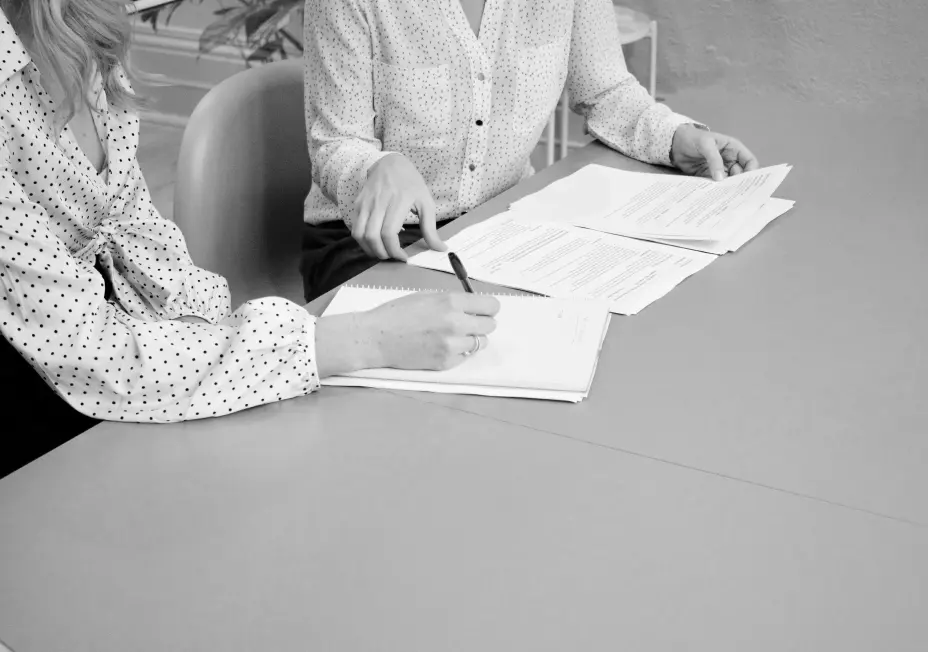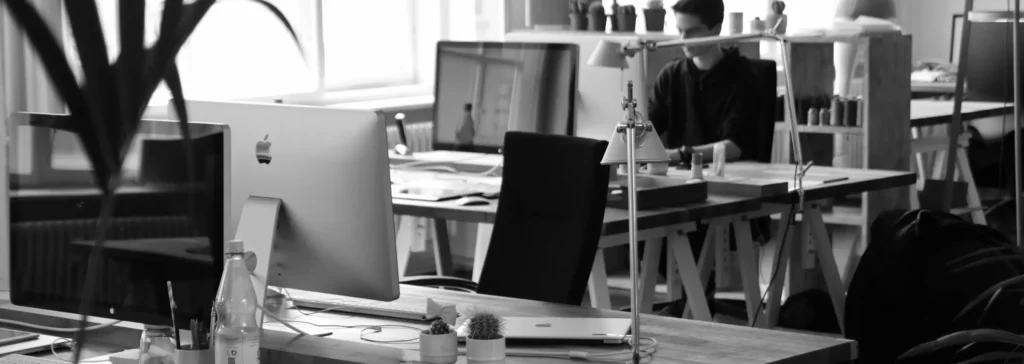Workplace accidents can happen to anyone, no matter how careful you are. It’s crucial to know your rights and the support available to you. In this article, we’ll cover:
- Your rights and responsibilities as an injured employee.
- The compensation process, including important steps and potential challenges.
- Resources to help you during this difficult time
What Injured Workers Can Expect from Workers Compensation
Under the Workers Compensation and Rehabilitation Act 2003 (Qld), employees are entitled, on a no fault basis, to statutory compensation in the immediate aftermath (within six months of work injury) in the form of periodic compensation (to cover lost income), coverage of treatment, rehabilitation, medication and other associated costs and reimbursement of associated out of pocket expenses.
Key Elements in Claims for Workplace Accidents
Here are some key elements to consider in claims for workplace accidents in Queensland:
- Duty of Care: Your employer is responsible for keeping your workplace safe, which means proper training, safe equipment, and a heads-up about any risks.
- Breach of Duty: If your employer didn’t meet these safety standards and that led to your accident, that’s a breach of their duty of care.
- Causation: It’s crucial to show that this lack of safety directly caused your injuries.
- Damages: Whether it’s financial losses like lost wages and medical bills, or the pain and discomfort you’ve endured, these are the damages you’ve faced due to the accident.
Other Important Things to Keep in Mind (Queensland Workplace Injuries)
Time Limits
In Queensland, you typically have six months from the date of your work accident to file a claim for statutory workers compensation benefits, according to Section 131 of the Workers’ Compensation and Rehabilitation Act 2003. However, this can vary in certain situations, so it is wise to speak with a workers compensation lawyer for personalised guidance.
If you qualify beyond statutory benefits to bring a workers compensation common law claim for damages for personal injury resulting from the negligence of your employer, there is a three-year limitation period within which to comply with legislated pre-litigation requirements and to commence legal proceedings in a Queensland court. This three year period runs from the date you sustained injury or your 18th birthday, whichever is the later. There are additional considerations where your injury has accrued over time – such as a repetitive strain injury or psychological injury from bullying and harassment. Again, it is wise to consult a workers compensation lawyer to ascertain what the limitation period is for your workplace injury.
Pre-existing and Unrelated Medical Conditions
Your claim evaluation may consider any health issues you had before or since the workplace incident which are not related to the incident but affect the value of your claim by having a relevant and independent effect on your past and future health and ability to earn income.
For instance, if a pre-existing back problem was exacerbated by the accident at work or if you had a cancer diagnosis, these health matters could be taken into account in assessing your compensation.
Contributory Negligence
This aspect comes into play if your actions contributed to the accident or the severity of your injury. For example, if you didn’t follow safety instructions or used equipment contrary to operating instructions and was injured as a result, this would amount to contributory negligence. It means that the compensation you would otherwise be entitled to could be adjusted to reflect your share of responsibility in the incident. This can have a significant impact on your in-the-hand compensation, as any statutory refunds that must come out of your compensation are not reduced for any contributory negligence – the full refund comes out of your reduced compensation.
Do I need Legal Advice?
In Queensland, you typically have six months from the date of your work accident to file a statutory benefits claim; and three years (from date of injury or your 18th birthday) to have satisfied pre-litigation claim processes and commenced legal proceedings in order to receive common law damages compensation. However, this can vary in certain situations. It’s wise to speak with a worker’s compensation claim lawyer for personalised guidance.
Types of Work Accident Claims
In Queensland, you typically have six months from the date of your work accident to file a statutory benefits claim and three years to have satisfied pre-litigation claim processes and commenced legal proceedings in order to receive common law damages compensation. However, this can vary in certain situations. It’s wise to speak with a worker’s compensation claim lawyer for personalised guidance.
1. WorkCover Statutory Claims
WorkCover statutory claims in Queensland offer crucial support without placing blame for workplace accidents. These claims provide immediate help covering medical costs, rehabilitation, and lost earnings during recovery.
The best part? You don’t need to prove fault or negligence by your employer or anyone else, making it easier to get the assistance you need quickly.
If you’ve been injured at work, whether it was your fault, a colleague’s, or due to workplace conditions, you’re eligible to make a WorkCover statutory claim. This includes physical and mental injuries, as well as conditions from excessive workload or repetitive tasks.
Workers’ compensation statutory benefits are, unfortunately, not open-ended. Your statutory benefits will end in a variety or ways:
- You recover enough to return to work without the need for further treatment or support;
- You do not fully recover, but your work injuries stabilise to the extent that they are regarded as “stable and stationary”, at which time your work injury is assessed and you are provided with a Notice of Assessment noting your Degree of Permanent Impairment and your statutory claim is ended with the offer of a statutory lump sum (which represents an amount for pain and suffering only).
- Your work injuries do not reach a stable and stationary state, but you reach the statutory maximum amount of compensation benefits.
NOTE: In most cases (unless your work injury exceeds a threshold of severity) the acceptance of the lump sum amount offered in a Notice of Assessment will preclude you from pursuing a common law damages claim for personal injury. It is extremely important that you obtain legal advice as to whether or not you should accept, defer or reject a lump sum offer in a Notice of Assessment within the Notice’s time limit.
2. Common Law Claims
Unlike workers compensation statutory benefits/ claims, common law damages claims for personal injury are fault-based – and require you to demonstrate that your employer was negligent and substantially caused or contributed to your work injury.
Common law damages claims are usually sought for more serious injuries and can result in substantial compensation. These claims take into account both short and long-term effects like past and future economic loss and loss of employment opportunity, future medical and surgical expenses and foregone superannuation.
Please also note that there is a strict limitation period (with very limited exceptions) for the bringing of a common law damages claim against an employer for negligence. In basic terms, the limitation period is three years from the date of the workplace incident causing injury or the worker’s 18th birthday, whichever is the latter. There are some additional complications:
– that measurement of the three-year period may vary where the injury results from repeated conduct or work requirements over a period of time; and
– the workers compensation legislation requires completion of a number of pre-litigation steps prior to a worker being able to commence legal proceedings in a suitable Queensland court to protect the limitation period.
As a result of these unavoidable technicalities, it is recommended that injured workers seek legal advice on the legal requirements applicable to their situation, including what the limitation date is for their particular circumstances.
Choosing Between a Statutory Lump Sum and a Common Law Damages Claim
As noted above, a statutory lump sum offer will be made at the conclusion of a workers’ compensation statutory claim once the injured worker’s work injury is stable and stationary and has been assessed. This lump sum is fixed by statute and represents an amount reflecting pain and suffering for the injury only. It is, however, a no-fault payment, so it is offered whether or not the injured worker caused the incident and their injury. Finally, in most cases, acceptance of a statutory lump sum offer will preclude the injured worker from making a common law damages claim for additional compensation.
Common law damages claims seek to compensate the injured worker, to the extent that money is able, and put them in the position they would have been but for the work injury occurring. As a result, a common law damages claim seeks compensation for a range of types of damages including pain and suffering, past and future economic loss and loss of employment opportunity, past and future superannuation, and past and future medical and associated costs (as the main components). Such claims will invariably exceed the amount of the statutory lump sum made for the same injury. Common law damages are, however, fault based (see the commentary above).
In light of the above, it is strongly recommended that an injured worker seeks legal advice from a workers compensation lawyer to determine whether they are better off accepting a lower statutory lump sum without having to prove negligence against the employer and (generally) foregoing any common law damages claim OR are better off rejecting the no fault lump sum to proceed with a common law damages claim for negligence against the employer OR have an injury of sufficient severity to be able to accept the lump sum AND make a common law claim.
Types of Compensation You Can Claim for Work Accidents
General Damages
These are awarded for non-economic losses in a common law claim. General damages cover intangible losses such as pain and suffering, loss of enjoyment of life, and the impact on the individual’s daily activities, social life, and overall quality of life. The assessment of general damages is highly regulated by legislation and requires the worker’s physical and/ or psychiatric injuries to be assessed and allocated an Injury Scale Value, which attracts a set amount of compensation by regulation.
Special Damages
These include measurable costs like medical bills, rehabilitation expenses, and other out-of-pocket expenses. Much of these expenses will be paid or reimbursed by the workers’ compensation insurer until the end of the statutory compensation claim. Once the statutory claim is concluded, the worker must keep records of all out-of-pocket expenses for medical expenses, pharmaceuticals, medical aids and injury-related expenses and also obtain corroborating evidence (generally medical evidence) justifying the expense and convincing the insurer (or ultimately the court) that the amounts should be reimbursed as part or a successful common law claim.
Economic Loss
This encapsulates past (i.e. from date of accident/ injury to date of settlement/ judgment) and future loss (from date of settlement/ judgment to anticipated retirement date). Past loss may be calculated as the difference between what the worker would have earned but for the accident/ injury and what they have actually earned. Future loss may be calculated by the anticipated difference between what the worker would have earned in the future and what they will now likely earn due to the injuries. These assessments might also incorporate some kind of assessment of the worker’s loss of opportunity for promotion, career development or diversification due to their injuries.
Ancillary losses
Superannuation in respect of past and future economic loss.
What Kinds of Workplace Accidents Does Workers Compensation Cover?
On the Job: Includes accidents that occur during regular work hours.
Travel-Related: Accidents happening while travelling to or from work.
Work-Related Activities: Injuries sustained during business activities or events.
Workers' Compensation Claim Process
Here is a general overview -additional information is provided on our other news pages.
1. Report the incident to your employer immediately.
2. Medical treatment and a Workers Compensation Medical Certificate.
3. Lodge a workers’ compensation statutory claim with the relevant workers’ compensation insurer within the stipulated time frames to secure the type of statutory compensation required.
4. Engage in a review process with the Workers’ Compensation Regulator should there be a claim rejection or any other insurer decision you do not agree with.
5. Comply with insurer requirements for contact, information and attendance at medical and rehabilitation appointments.
6. Maintain thorough records of all insurer interactions and attendances.
7. Seek an assessment of work-related permanent impairment at the conclusion of your workers’ compensation statutory claim.
8. Seek legal advice as to whether you should accept the lump sum offer contained in the issued Notice of Assessment or to proceed with a common law damages claim against your employer.
9. If pursuing a common law damages claim, prepare and lodge with the employer and the insurer a Notice of Claim for Damages in the prescribed form within the statutory time limit.
10. Complete the legislated pre-litigation procedural steps with the insurer.
11. If the pre-litigation steps are completed without settlement, commence legal proceedings in the relevant Queensland court within the statutory limitation period.
Workers’ compensation is a very technical and legislatively managed process. Innocent errors, omissions, misunderstandings and lack of precision and attention to detail can all prejudice acceptance or the scope and duration of a workers’ compensation statutory claim. Rejections or adverse decisions can only be addressed and potentially rectified through lengthy review and appeal processes. These complexities can be difficult for even the most sophisticated of claimants. Working with a workers’ compensation lawyer, who has experience and expertise navigating the numerous technicalities and nuances of the legislation, processes and “quirks” of the applicable insurer can result in the worker obtaining a better outcome than they would have otherwise secured on their own initiative.
Advantages of Consulting with a Workers' Compensation Lawyer
Frequently Asked Questions
What common mistakes should I avoid when filing a work accident claim?
Don’t wait too long to report the accident. Get medical help and follow the treatment plan. Be consistent and provide all details. Don’t settle too quickly or without legal help.
How long do I have to make a QLD WorkCover Accident Claim?
Report your injury as soon as possible. Depending on when your report and associated claim is lodged, you may not be entitled to many of the normal workers compensation benefits and those that are provided are limited to prospective benefits (i.e. no reimbursements for past losses or expenses). Applications for statutory benefits outside of six months need to be carefully considered as to whether reasonable excuse for delay can be provided (or other evidence of legislated exclusions can be provided); or else limit the claim to assessment of permanent impairment. Once a Notice of Assessment is received (and if the statutory lump sum is not accepted, if below the injury threshold) a common law claim for damages for negligence can be pursued by lodgment of the prescribed Notice of Claim for Damages within three years of the work accident/ injury or the worker’s 18th birthday (whichever is later). Note: There is an overall three-year limitation period (three years of the accident or the worker’s 18th birthday) to commence legal proceedings in protection of the worker’s compensation rights. Proceedings cannot be commenced without obtaining a Notice of Assessment and completing aspects of the pre-litigation process under the legislation. It is highly recommended that injured workers contact a workers compensation lawyer to ascertain what time limits and restrictions might apply to their workers’ compensation statutory and common law entitlements.
How can I gather evidence to strengthen my work accident claim?
Collect witness names, contact details and statements (even just letters rather than statutory declarations), take accident scene and injury photos, obtain medical records for injury treatment, obtain work records of relevant information, including workplace policies and procedures, relevant machinery operating manuals and service records, WHS and toolbox meeting records, and maintain records of injury-related expenses.















